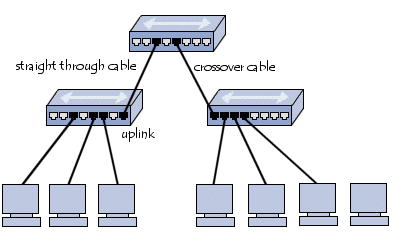What is the hub in network equipment: definition, usage

What is a hub? A hub is a hardware element for centralizing network traffic from multiple hosts that also propagates the signal. It has several ports - enough to link machines to one another, usually 4, 8, 16, or 32. Its only goal is to recover binary data from a port and send it to all the other ports. The hub connects several machines, sometimes arranged in a star shape, which gives it its name because all communication from the machines on the network passes through it.
What are the types of hubs?
There are several categories of hubs.
- Active hubs
Active hubs are connected to an electrical power source and are used to refresh the signal sent to the ports.
- Passive ports
They simply send the signal to all the connected hosts without amplifying it.
How to connect multiple hubs?
It is possible to connect several hubs to centralize a more significant number of machines. This is sometimes called a daisy chain. To do this, all you need to do is to connect the hubs using crossover cable. This cable links the in/out ports on one end to those on the other.
Hubs generally have a particular port hub called an uplink for connecting two hubs using a patch cable. Some hubs can cross or uncross their ports automatically, depending on whether they are connected to a host or to a hub.

 |
Up to three hubs can be chained. |
A hub is insufficient if you want to connect multiple machines to your Internet connection. You'll either need to have a router or a switch or leave the computer connected directly as a gateway (it will stay on constantly for as long as the other computers on the network want to access the Internet).

